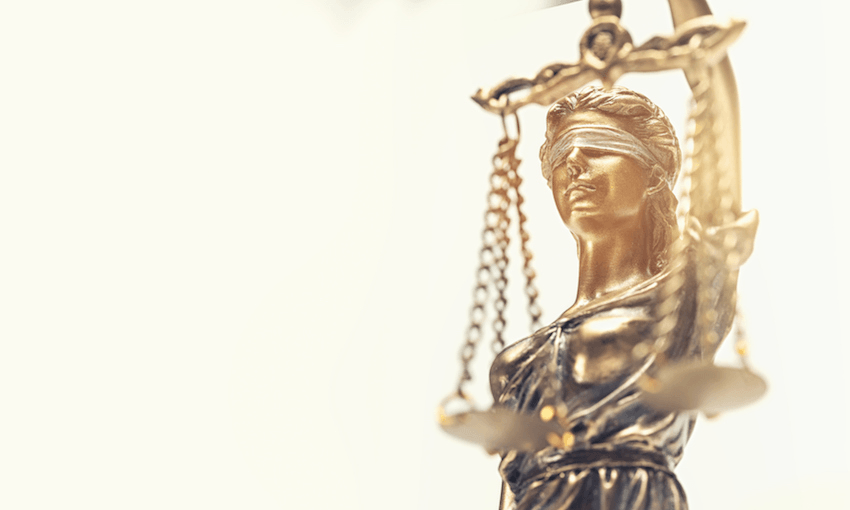Following allegations of sexual misconduct first reported by Newsroom, the law firm Russell McVeagh commissioned an independent review, conducted by Dame Margaret Bazley. Today she has published her findings. Below is her overview. The report can be read in full here.
In February 2018, the law firm Russell McVeagh asked me to review claims that five summer clerks were sexually harassed over a three-week period in the summer of 2015-16 by a partner and solicitor from one team in the firm’s Wellington office. I was also asked to review any other incidents brought to my attention, the firm’s framework of policies, standards and systems, and its culture. I acknowledge Russell McVeagh for commissioning an independent, external review and for agreeing to release it publicly.
Over the last four months I have heard from more than 250 people. Most told me that Russell McVeagh is a great place to work, that they had a fantastic experience there, they enjoyed working with top quality lawyers and had excellent training while working on complex and leading edge legal issues. I was heartened to meet with so many motivated and talented lawyers during the review. I also spoke to many dedicated and hardworking support staff.
Where possible in my report [which can be viewed in full here] I have described the details of what I have been told. I had hoped to be able to describe the details of all of the 2015-16 incidents, but this has not been possible. In some instances I received requests for privacy and I have sought to strike a balance between privacy and the benefits of accurately describing the allegations. In particular, I have reflected the wishes of the women concerned in the way the allegations have been described. Ultimately, it has not proved necessary for me to reach factual findings about the incidents themselves, but I have concluded that the firm handled the incidents poorly. The failures have had serious consequences for the people involved.
This review has been complex and has required careful consideration and balancing of a wide range of perspectives. The overarching impressions I have formed over the course of the review are:
First, I found that in the past Russell McVeagh had a “work hard, play hard” culture that involved excessive drinking and in some instances crude, drunken, and sexually inappropriate behaviour. Junior lawyers and other young staff were encouraged to drink to excess. After the incidents the firm moved decisively to address these issues and began to change the culture. Two and a half years later, during my review, I was not told of any recent instances of sexual harassment, sexual assault, or alcohol fuelled misbehaviour.
Second, in reviewing the firm’s response to the incidents I found failings in the firm’s governance, structure, management, policies, standards, and systems, as well as the lack of a code of conduct. These failings contributed to the poor management of the incidents of 2015-16. I found that there was no-one in charge in the Wellington office, the team within which the incidents occurred was out of control, and what was happening in that team was not noticed by the partners or brought to the attention of the Board.
Third, as part of my broader review of the firm’s culture I was surprised to hear of pockets of bullying, poor work management practices resulting in excessive work hours for junior lawyers, and fear among lawyers and partners about the potential consequences of speaking out. A recent survey of all lawyers by the New Zealand Law Society revealed that bullying and harassment are problems across the entire legal profession. This does not minimise the reality of what has occurred at Russell McVeagh, but means the firm is not alone in needing to confront these issues. To its credit, the firm has not shied away from the problems, and has moved to act immediately to address them.
Fourth, although nearly 30% of partners are women and progress has been made with gender equality, many talented women lawyers still leave the firm rather than progressing to partnership. This is disappointing and a big loss for the firm.
Progress has also been made in the LGBTTI and diversity areas, but ongoing work is required to address sexism and unconscious bias. I consider any form of discrimination against women to be a serious issue because it inhibits the change that is needed to achieve the complete elimination of sexual harassment and sexual assault.
Fifth, cultural change of the magnitude contemplated by this review takes persistent and consistent effort to embed. Building on the work the firm has already begun, it is imperative that the Board, Chief Executive, and every partner are committed to the proposed transformation of the firm’s culture and that they have a 10-year plan to implement, monitor, and audit the change.
The young people who were involved in these disgraceful incidents at the start of their working lives, and who have had the courage to speak out, have been a catalyst for change for Russell McVeagh and the wider legal profession. It is my hope that the changes proposed will ensure that future generations of junior lawyers will be safe and able to realise their full potential.
The firm has accepted the recommendations set out in the report, and with the leadership of the current Board, I am confident it is well-placed to tackle the challenges ahead.



